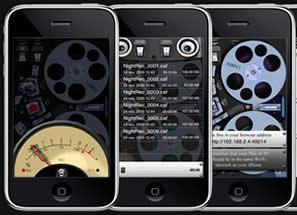 The BYOD (Bring Your Own Device) movement has become an integral part of the enterprise. Data center networks now allow your store-bought phone or tablet to securely access company data and work applications–allowing you to do your job anywhere, anytime. You can install enterprise apps to input and manage company data from your own device. But with the blurring line between our personal phone or tablet and our interactions with our employer, some problems seem to be on the horizon.
The BYOD (Bring Your Own Device) movement has become an integral part of the enterprise. Data center networks now allow your store-bought phone or tablet to securely access company data and work applications–allowing you to do your job anywhere, anytime. You can install enterprise apps to input and manage company data from your own device. But with the blurring line between our personal phone or tablet and our interactions with our employer, some problems seem to be on the horizon.
Recently, a close friend who works for a very large company found out their company’s device apps report and track their movement and actions during their work day–sending reports to managers. A discovery made aware to them in a morale-eroding way. A berating phone call to employees from management who, under pressure to increase sales, revealed the existence of these tracking features on their devices as damning proof the employees weren’t working in the manner the company thought they should.
Besides communicating, “we don’t trust you” and “gotcha!” in one swoop, that surprising revelation instantly generated employee shock, device fear, betrayal, distrust and morale issues that company will be likely wrestling with for years to come.
This type of monitoring is possible as apps on your devices can have access to information constantly being recorded and stored on your phone or tablet. Personal info that’s logged manually and automatically–like your location or the time you clicked on a button or accessed data over your company’s network.
In this case, the tracking feature, part of a bigger sales management app, were on company-supplied devices. This means there likely isn’t anything illegal about the company’s actions or failure to share their ability to track upfront. But the real issue isn’t legality anyway. Rather, in a BYOD environment, where a mobile workforce will soon install more and more company related enterprise apps on their private phones or tablets, that could potentially spy on them, what will happen when employees wonder if that phone in their pocket is also looking over their shoulder?
I’ve seen this happen already. I’ve worked with clients with employees (who are highly tech savvy) afraid the software on their computers enable their employer to turn on their computer camera anytime to peek at them. Such events famously happened in Philadelphia schools as school administrators remotely turned on laptops loaned to students while the students had them in their homes. Many of my client’s employees, paranoid or not, tape over their laptop camera lenses. If they’re uneasy with their laptops, why won’t the capability or fear be played out on a phone or tablet?
It’s likely your personal device is on more than the 9-5 work day. Since your device is always gathering information are there rules or limitations to stop an employer from gathering or looking at data on your phone during your off hours from work?
Or what do you do if an app notification on your phone appears that says, “Company X App would like access to your contacts?”
Most commercial mobile apps or hackers in the case of camera control can do many of these things already. Fortunately, most reputable companies also ask for access to such personal data. As companies and their work-related apps make their way on to the personal real estate our tables and phones, will they do the same?
Or like the recent cases where employers demanded potential employees surrender their Facebook passwords to allow them to login and review their social history, if they ask, will the BYOD workforce feel comfortable saying “no?”
BYOD environments that blend the professional with the personal will have to navigate these issues. The decisions will decide if your phone or tablet makes you productive or paranoid?